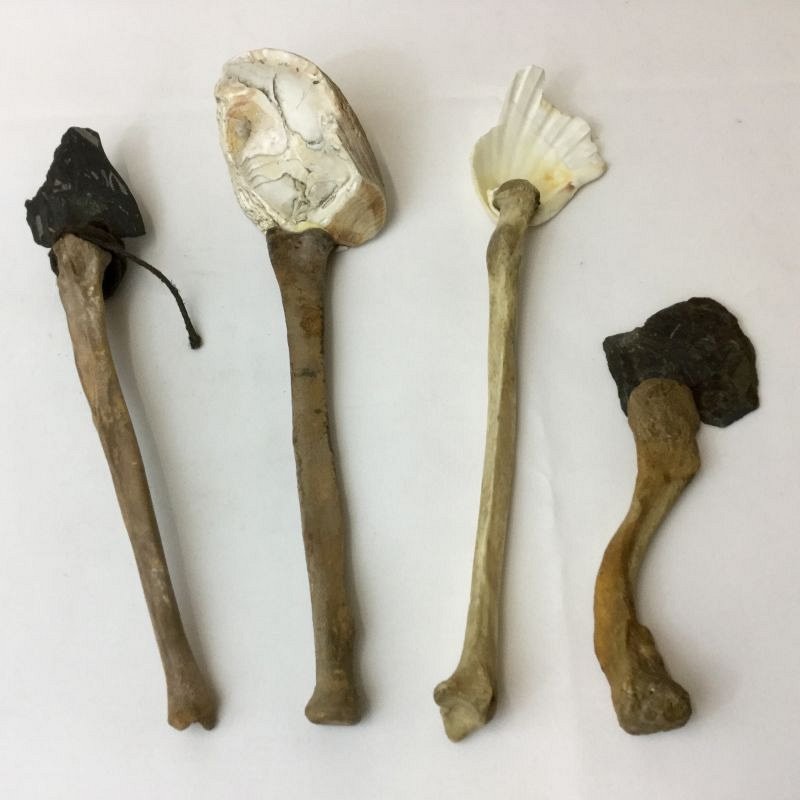Middle-Manager's Guide: How The Industrialization Began
The Industrial Revolution, driven by factors like Britain's political system and resources, transformed manufacturing and shaped modern technology. Understanding this history is crucial for leaders navigating today's rapid technological change.
It is quite challenging to keep up with the daily developments in technology for the past 20-30 years. It feels as if at a blink of an eye, a new technological development gets pushed into our world. This puts some stress on middle-managers who want to stay on top of innovation and drive their team forward. But let's first try to fully grasp an understanding of what the technology actually is and what it stands for.
The word technology comes from the combination of the Greek word techne, meaning art and craft, and the word logos, meaning word and speech. It defines any invention of techniques and tools developed by humans including stone tools made in stone-age and machine learning nowadays.
Let's dive into history a little bit and try to understand how we developed technology in the early days. It is believed that the first humans existed around 5 to 7 million years ago1. Then, 3 million years later, the earliest human ancestors began crafting stone tools to make sharp edges which were essential in hunting, butchering animals, and processing plant materials.
Around 1.5 million years later, we learned to control fire; providing us warmth, protection from predators, ability to cook food, and ease of digestion. Then came creating shelters with wood and mud, then using animal hides and plants to create clothing, bows, fishing equipment etc.
So you see, it took quite a while for us to get where we are now. However, technological developments have been growing exponentially, especially after the industrial revolution that took place between 1750 and 1900.
Industrial Revolution
The Industrial Revolution started in Britain and then spread to the rest of the world. We can say that the early adopters are mostly what we call today, the developed countries. The other nations were either too far away from Britain, or just simply rejected the new developments. You might ask why would they reject such a thing?
Well, the most common cause for this was because most believed these technological advancements could put their artisans out of business, creating angry business owners, which might have eventually lessen the power of the then government leaders.
Some companies' disadvantage was that they were distant from where the action was happening. It took a long time for industrialization to spread. But as we see today, the latency in receiving such information on latest technology developments was irrelevant. The important part was how people responded to it.
Japan, and Korea are brilliant examples of this. They were far away from the heart of industrialization; Japan started industrialization in the late 1800s, then Korea even later, after 1910. Yet, even having a loss at war, they were able to catch up and put their name in the list of developed nations because they were eager to implement the new technologies.
Why were some countries able to pick up the technology quickly, and others were not? Some economists suggest that it mostly is a result of culture. This is debatable and perhaps even controversial. But a much better question is, why did the Industrial Revolution start in Britain in the first place?
How come the Industrial Revolution started in Britain?
Long before the Industrial Revolution started to take place, Britain established a parliamentary system that restricted the power of the King. This was a long process, and it involved a lot of friction in the way the country was ruled.
In the Middle Ages, the monarch's rule was supreme. However, if advice or support were needed, the King would summon his richest and most powerful subjects to his Council. Then, in the 13th century, some towns and each county started to send representatives to some of these meetings. The term Parliament was used to describe these assemblies. Later the Parliament gained more and more power and became a prominent part of the society.2
This increased the security of owned properties by people, ensured the demand and voices of business people were heard, and prevented the King from being able to rule anything directly. So every decision made was carefully considered by keeping the interest of the economy in mind by the businessmen of the era which enhanced the economy.
As the economy got better, the wages had naturally increased but put the manufacturing Britain at risk because businesses paid more to their employees in Britain compared to India or China. Labor was the highest cost at the time because most goods, such as processed cotton , were crafted manually. So it became more economical to outsource labor intensive goods, putting a limit to their economic growth.
However, Britain also had a geographical advantage, it had abundant natural resources such as coal and iron ore. They put the coal into use and realized it was much cheaper to cook and stay warm unlike wood where used globally. So the cost of energy went down dramatically.
This eventually encouraged the people to utilize the low energy costs, and plenty of iron ore to come up with machines that semi-automated the tasks with minimum labor. Cotton spinning machines and steam powered gadgets later became widely used and brought the costs of goods much cheaper than the rest of the world.
The interesting thing is that the same manufacturing method was not viable for the other nations even if they had imported the machines directly because their energy costs were still high and labor was low. So for them it was still less costly to manufacture by hand which had them lose their market dominance. So companies without access to cheap energy and raw materials took a long time to catch up. And by the time they catched up, Britain and other developed nations took on other challenges and kept expanding their economy in various ways.
So it could have started anywhere else in the world really, but without paving the way and setting inclusive conditions we might not have gotten there yet. So a middle manager's role in a manufacturing environment should be to listen, provide as various resources as possible, and let the artisans do their magic.


